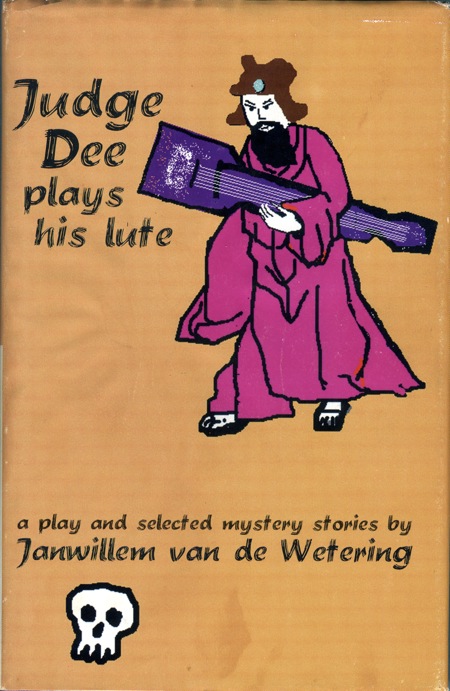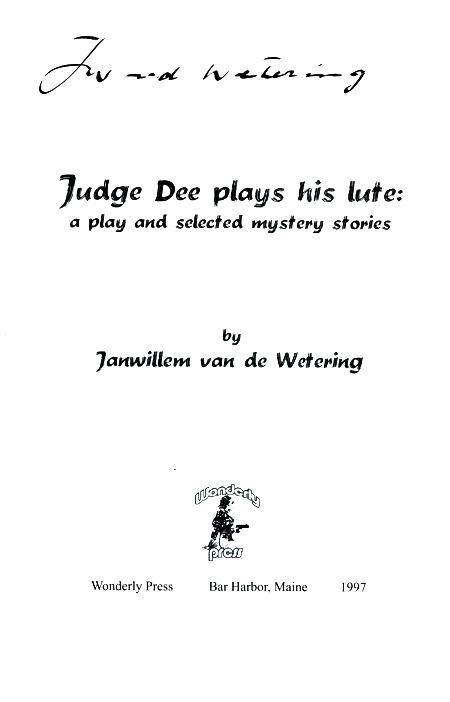Today I would like to add a new entry to the critical fiction reading list in honor of Janwillem van de Wetering, Dutch-born author who died in Maine three years ago today:
Janwillem van de Wetering. Judge Dee Plays His Lute: A Play and Selected Mystery Stories. Bar Harbor, Maine: Wonderly Press, 1997. Cover illustration by the author.

The radio play that gives this book its title is a critical fiction of the life and writings of R.H. van Gulik, Dutch sinologist, diplomat, and detective novelist, in the form of a vision or daydream at van Gulik’s funeral. It was the starting point for my discovery of the writings of Janwillem van de Wetering. His novel The Japanese Corpse (1977) includes a character based upon van Gulik, who was the Netherlands ambassador to Japan at the end of his career. I came across a copy of Judge Dee Plays His Lute a few months after writing a lengthy article on van Gulik (available here). I wrote to van de Wetering and in the course of our correspondence* interviewed him for an issue of AB Bookman’s Weekly published when he was guest of honor at Bouchercon in 1998 (that article is available here). We first met at the convention, where as guest of honor he was to be interviewed by Carl Hiassen. After lunch, he, remarked, Now it is time for the bear to dance. That phrase lodged itself somewhere in my memory, colliding with recollections of the Zen fable ‘Ten Bulls’ and aspects of the detective story, and so my own readings of van de Wetering’s novels and memoirs prompted me to write — very, very slowly — “Ten Bears; or, a Journey to the Weterings (A Critical Fiction)” (The New York Review of Science Fiction, October 2003; collected in Another green world, 2003).
For me, as writer and as reader, critical articles are (sometimes) simply not sufficient response to the many pleasures and challenges that another writer’s work elicits.
* A correspondence that continued until shortly before his death on 4 July 2008. He was 77, and that spring had written me a farewell letter remarkable for its clarity and directness in confronting death, but then he had written some years ago :
“ Perhaps he didn’t mind if he died, the commissaris thought. He thought death was exciting, a journey — he liked journeys. ”
